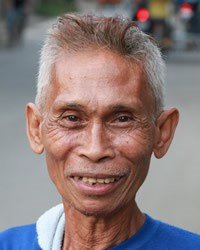Cebuano in New Zealand

Photo Source:
Øyvind Holmstad - Wikimedia
Creative Commons
|
Send Joshua Project a map of this people group.
|
| People Name: | Cebuano |
| Country: | New Zealand |
| 10/40 Window: | No |
| Population: | 3,700 |
| World Population: | 24,011,900 |
| Primary Language: | Cebuano |
| Primary Religion: | Christianity |
| Christian Adherents: | 99.00 % |
| Evangelicals: | 12.00 % |
| Scripture: | Complete Bible |
| Ministry Resources: | Yes |
| Jesus Film: | Yes |
| Audio Recordings: | Yes |
| People Cluster: | Filipino, Central |
| Affinity Bloc: | Malay Peoples |
| Progress Level: |
|
Introduction / History
The Cebuano people, also known as Cebuanos or Bisayans, are the second-largest ethnolinguistic group in the Philippines. They primarily inhabit the Visayas region, including Cebu, Bohol, Negros Oriental, and parts of Mindanao. Their language, Cebuano, is part of the Austronesian family and is one of the most widely spoken languages in the country.
Historically, the Cebuanos trace their roots to early Malay settlers and have been influenced by centuries of Spanish colonization, which introduced Catholicism and European customs. Cebu was the site of Ferdinand Magellan's arrival in 1521, marking the beginning of Spanish influence in the archipelago. Over time, the Cebuano people have developed their own cultural identity, blending indigenous traditions with Spanish and American influences.
Of all the Filipino groups, Cebuanos are most likely to migrate to English-speaking countries. They not only live in the Philippines, but also in the United States, Canada, Australia, and New Zealand.
What Are Their Lives Like?
Cebuanos in New Zealand are known for their industriousness, hospitality, and strong family ties. Many live in urban centers such as Cebu City, a central hub for commerce, education, and tourism. Others reside in rural areas, engaging in farming, fishing, and small-scale trade.
Their lifestyle varies by region—urban Cebuanos often work in business, education, or government, while rural communities rely on agriculture and artisanal crafts. Festivals like Sinulog, held in honor of the Santo Niño (Holy Child), showcase their vibrant culture through dance, music, and religious devotion.
They value education, and literacy rates are relatively high. Cebuano families often emphasize respect for elders, community cooperation, and religious observance.
What Are Their Beliefs?
The Cebuano people are predominantly Christian, with Roman Catholicism being the dominant faith. Churches are central to community life, and religious festivals are widely celebrated. While Christianity is widespread, there is a growing need for deeper discipleship and biblical literacy. Some Cebuanos also blend Christian beliefs with folk traditions, including superstitions and indigenous healing practices.
A minority of Cebuanos, especially in Mindanao, may identify with Islam or other belief systems, but these are exceptions.
What Are Their Needs?
They need access to contextualized discipleship and biblical teaching to deepen their understanding of Scripture and strengthen their faith. They need spiritual renewal in areas where Christianity is nominal or mixed with folk beliefs.
Prayer Points
Pray for spiritual revival among Cebuano Christians, that believers would grow in biblical understanding and live out their faith boldly.
Pray for discipleship movements that equip local leaders to teach and mentor others in the Word of God.
Pray for the younger generation to remain rooted in Christ amid modern influences and secularism in New Zealand.
Pray for unity among believers, and for the Cebuano church to be a sending force for missions within the Philippines and beyond.